
Master’s program
“Digital technologies in socio-humanitarian practices”
Title/degree: Master’s of Science (MSc) in Chemistry
Duration: 2 years (120 EC), full-time
Start month: September
Language of instruction: Russian/English
Program code:09.04.03 Applied Informatics
Department: Institute of the Human of the Digital Era
UX/UI design
Nowadays the way your digital product looks determines how popular it will be among the customers. That is why it is important to apply core principles of UX/UI design at the development stage and thus create more useful and more effective products.
There is currently a great demand for professionals in UX/UI design because the graphic interface becomes the key element for the interaction and also a major selling point for digital products and we’ll train you to become that professional.
Why Choose Our Master’s Programme?
- Receive education that meets global quality standards
- Develop a set of digital skills required by most employers, governments, and other institutes of modern world, including social media, blogging and microblogging services, fields as game design, advertising, journalism, digital visualization, supervision, and more
- Perform scientific research in the context of new agenda
- Be a part of global scientific community
- Choose your personal educational path (the curriculum is designed according to each learners’ needs)
- Try new educational technologies (problem based learning, project work, online and distance education)
- Get familiar with digital research methods from the entry level (no previous experience in programming is necessary)
- Scholarship and grant programs possible
- Meet new international friends and colleagues
The Master’s programme in Digital technologies in socio-humanitarian practices is geared to information technology professionals, who plan to pursue a career in companies engaged in the development and promotion of software and information products for social and cultural spheres. Understanding a modern society and culture, human behavior in the digital world, people’s interaction with technologies, and having a basic knowledge of design and communication practices our graduate will not only be able to produce quality products, which meet the expectations of users, but also create a whole new products.
| 1 term | 2 term | 3 term | 4 term | |
| Core courses | 25 EC | 19 EC | 9 EC | |
| Elective courses | 2 EC | 5 EC | 3 EC | |
| Practical training and research work | 3 EC | 6 EC | 18 EC | 24 EC |
| Final state examination | 6 EC |
Academic council
- Mozhaeva Galina V. – (Chair) Candidate of Historical sciences, Director of the Institute of Distance Education of TSU, Executive director of StrAUs Institute of the Human of the Digital Era, head of the Department of Humanitarian Problems for Informatics
- Zilberman Nadezhda N. – (Vice-chairman) Candidate of Philological Sciences, Associate Professor of the Department of Humanitarian Problems for Informatics
- Borodkin Leonid I. – Doctor of Historical sciences, Professor, Associate member of Russian Academy of Sciences on the issues of historic-philological sciences , Russian Natural Sciences Academy academic, Head of the Department of Historical Informatics of Historical Faculty of Lomonosov Moscow State University, President of the Association “History and Computer”, board member of Russian Association for Digital Humanities (on agreement)
- Brel Elena Y. – Candidate of Psychological sciences, Head of the Educational management of TSU
- Cristina Jasbinschek Haguenauer – Professor of Communication School of Federal university of Rio de Janeiro, Brasil, (on agreement)
- Lapteva Marina A. – Candidate of Philosophical sciences, Associate Professor of the Department of Information Technologies in Creative and Cultural Industries of the Siberian Federal University (Krasnoyarsk), Chairman of the Board of the Russian Association for Digital Humanities (on agreement)
- Goyko Vyacheslav G. – Head of Big Data sciences and social problems laboratory of TSU
- Eliseev Stanislav – Director IT company «USERSTORY»
- Ketova Tatyana S. – Executive director of Higher IT School of TSU
- Parkhomenko Andrei – Director of AR/VR company «Phygitality» (on agreement)
- Petelin Aleksandr E. – Candidate of Physical and Mathematical Sciences, Head of Practices and Employment office, Associate Professor of the Department of information support of innovative activities
Partners
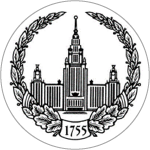
Lomonosov Moscow State University
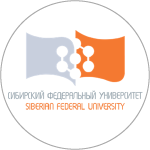
Siberian Federal University
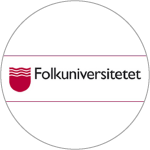
Folkuniversitetet (Switzerland)of the SB RAS, (Novosibirsk)
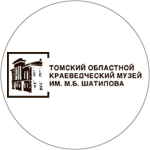
Tomsk History Museum of the SB RAS, (Novosibirsk)
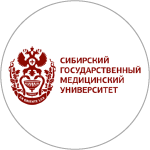
Siberian State Medical Universityof the SB RAS, (Tomsk)
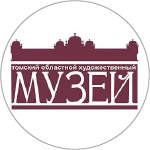
Tomsk Regional Art Museum
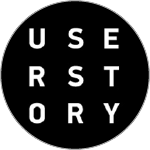
Userstory (Tomsk)
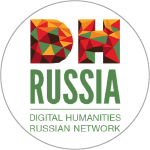
Digital Humanities Russian Network

Universidade Federal do Rio de Janeiro, UFRJ
Research
Project 1
Using big data analytics to discover social networks potential to find and attract, and retain the talented youth in regional higher education institutions. To find out more about the project follow the link
To perform high-tech analysis of synthesized social networks datawe use a combination of mathematical modeling, network visualization, cognitive linguistics, pedagogy and digital humanitaristics. In the course of the project we collect data from the social network VKontakte (VK), interpret texts, create visual models of network interaction patterns of prospective students on VK, develop a complex image of a prospective student of a regional higher educational institution, detect the talented youth among high-school students based on their VK profiles, and create a database of prospective students of TSU.
Project 2
Creating a regional Center for Excellence in On-line Teaching
The project aims to create an infrastructure and a pool of skilled professionals in the area of effective application of on-line teaching in classrooms of higher education andnon-university level higher education institutions in the regions of Russia.
Project 3
«QM&CQAF – The expansion of the EU-approaches to providing the partner-countries higher education quality assurance Expanding Quality Assurance»
The General objective of the Project is the EU educational quality model adaptation at national level and gathering positive utility practices of that model’s dissemination and educational quality assurance.
The following activities to be done during this project:
– Research of quality model CQAF appreciation in the partner countries;
– The exploitation concept CQAF quality model elaboration in the partner countries
– Resource and promotional materials elaboration;
– Training the tutors in the CQAF model recipient-countries universities;
– Higher education quality model Guide elaboration and discussion on the national level;
– CQAF model exploitation processes support and monitoring in the recipient-countries;
– Additional research of the CQAF quality model appreciation in the partner countries and deliverables according to Quality Management principles.
Project 4
Developing educational on-line projects of TSU. For more information about the project go to
The projects aims to develop a number of on-line courses which will improve the visibility of the university in the world, potentially attract more international students; improve the quality of teaching thtough integration of technology and conventional teaching practices.
Throughout the project we plan to launch new and improve existing MOOCs based on customer reviews, teach TSU teaching staff how to develop their own MOOCs in Russian and English, improve collaboration with existing international platforms like Coursera, Stepic, Lectorium, and much more.
Career prospects
More and more companies these days are in search of employees with deep understanding of technologies and ways people may use them and our graduates are in demand. You can build a career inprogramming, information systems, user experience design (UX), user interface design (UI), information architecture (IA), various types of research, consulting, and analyticsin the IT sector and social and humanitarian areas.
Admission and application
| Specific requirements | Detailed information |
| Knowledge minimum | Bachelor degree, Specialist diploma |
| Previous education | Various fields |
| Professional experience | Relevant working experience is an advantage, it is not necessary |
| Other admission requirements | Students will be selected based on: 1) Examination in Informatics ; 2) Interview (in person or using Skype); 3) English (exam or IELTS or TOEFL certificate). |
Tuition fees
| Year | Citizens of the Russian Federation and near abroad | Other International Citizens |
| 2017-2018 | 138 100 RUB | 168 600RUB |
Application deadlinesfor the citizens of the Russian Federation and CIS
countries in 2018
| Application deadline | April 3 – August 14 |
| Examinations | May 10 – August 16 |
Application deadlinesfor the other International
citizens in 2018
| Appication deadline | January15 – July 10 |
| Examinations | January16 – July 26 |
Interested?
Apply Right Now!
Contact:
Program manager Natalia Bulgakova
E-mail: nikolaenkova@ido.tsu.ru
Academic office: Tomsk State University, Moskovskiy trakt 8 (Building № 4), room 313,
Tomsk, 634050, Russia
https://vk.com/huminf
http://huminf.tsu.ru/enf
© 2017 Tomsk State University
